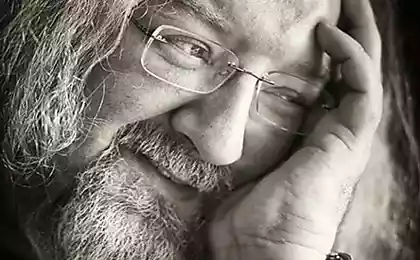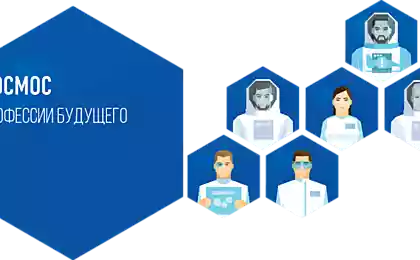182
10 questions that will help you find a calling
The best reward in life is the opportunity to do something that is self-worth. When work becomes not just a source of income, but a deep expression of personality, the quality of life itself changes. But how to find the business that will turn everyday life into a source of energy and inspiration?

The path to self-knowledge begins with honest questions about yourself.
According to a study conducted by Stanford University psychologists, people who find their calling show a 64% higher level of life satisfaction and 39% less likely to suffer from professional burnout. According to Gallup, only 13% of workers worldwide are truly engaged in their work and consider it a meaningful part of their identity.
Finding a vocation is not a selfish hobby, but the most important existential task. Calling is at the intersection of three things: what you love to do (passion), what you do well (talent), and what the world needs (need). Finding this intersection will help correctly formulated questions.
Why is it important to find your calling?
The modern world offers an unprecedented number of career opportunities, and it is this diversity that often causes confusion. Psychologist Barry Schwartz, in his paper The Paradox of Choice, explains that an excess of options can lead to anxiety and an inability to make a decision.
Vocation should not be confused with profession. Vocation is a deeper concept related to self-realization and life mission. It can manifest itself in various forms of activity and change its expression throughout life. It is important to remember that the search for a calling is not a one-time event, but a continuous process of self-discovery and growth.
10 Questions to Find a Vocation
We offer a methodology of 10 deep questions, developed on the basis of studies of positive psychology and career counseling. Each question will help highlight a specific aspect of your personality and potential calling.
Question 1: What makes you forget about time?
Flow state researchers argue that activities in which we lose our sense of time often point to our deepest interests. Think back to a time when you were so busy that you didn’t notice how time flies. It can be anything from writing code to growing plants or educating other people.
It is important to note specific actions, not general categories. Not just “music” but “arrangement making” or “analysis of harmonic structures in classical works.”
Question 2: What achievements are you most proud of?
Our true values are manifested in things that give us deep satisfaction. Psychologist Martin Seligman, author of the theory of authentic happiness, suggests analyzing not so much the achievements themselves as the emotions they cause.
Make a list of 5-7 accomplishments you are particularly proud of. These can be large-scale projects or small personal victories. Analyze what qualities, skills and values are behind these achievements.
Question 3: What topics do you study voluntarily and enthusiastically?
The topics we address without external coercion reflect our true interests. Neurobiological studies show that when we engage in topics of interest, dopamine circuits in the brain are activated, responsible for intrinsic motivation.
Analyze your search history: Which articles, books, podcasts, or online courses catch your attention? What do you read about in your free time? What would you learn if you had a year of free time and unlimited resources?

Conscious choice of life path requires not only intuition, but also an analytical approach.
Question 4: What expert advice do others seek from you?
Areas where others recognize you as an expert often point to your strengths and potential calling. According to Gallup’s strength theory, people who use their talents daily are six times more likely to feel engaged in work.
Remember what questions you are most often asked by friends, colleagues or even unfamiliar people. In what areas do you give advice that you really value and use? These can be both professional competences and everyday wisdom or specific skills.
Question 5: What problems in the world are causing you the most emotional response?
Social entrepreneurship researchers have found that sustained motivation is often associated with a desire to solve meaningful problems. Psychologist Jonathan Haidt calls this “elevation,” a special emotional state that occurs when we witness kindness, courage, or moral perfection.
What news or events make you stop and think? What are the social, environmental or technological challenges that make you want to act? Think about what problems you would like to help solve with your work.
Practical advice
Keep a journal of answers to these questions for at least 2-3 weeks. A regular return to reflection will allow you to see the repetitive patterns and deeper themes behind everyday preferences.
Question 6: What would you do if you didn’t have to make money?
This classic question helps to separate intrinsic motivation from external stimuli. According to the self-determination theory of psychologists Desi and Ryan, true motivation arises from the satisfaction of three basic needs: autonomy, competence, and connection with others.
Imagine that your financial needs are fully met. How would you spend your days? What projects would they launch? What would you spend more time on? The answers to these questions often point to activities that have intrinsic value to you.
Question 7: What stories about other people inspire you and why?
Cognitive psychologists note that we are particularly susceptible to narratives that resonate with our values and aspirations. By studying the stories that touch us, we can better understand our own desires.
Think of biographies, movies, or success stories that have made a strong impression on you. What qualities of heroes cause your admiration? What paths of development do you find particularly attractive? Analyzing these reactions can reveal your deepest values and aspirations.
Question 8: What compliments from others are especially important to you?
Recognition from the outside can indicate talents that we ourselves underestimate. Studies show that many people do not realize their unique abilities, considering them ordinary or taken for granted.
Remember compliments that you have received repeatedly or that have made a particularly strong impression on you. What qualities or skills do people value you for? What praises make you feel truly understood and appreciated?

The vocation is formed at the intersection of our talents, passions and the needs of the world.
Question 9: In what situations do you feel most competent and energetic?
Organizational psychologist Amy Edmondson introduced the concept of “psychological safety zones” where people feel confident enough to take risks and reach their potential. Finding such situations for yourself helps determine the environment in which your calling can blossom.
Analyze in what environment, with what people and at what tasks you feel the most confidence and enthusiasm. This may be due to a specific type of team, pace of work, degree of autonomy or specificity of tasks.
Question 10: What would the ideal day of your life look like in 5-10 years?
The method of visualizing the future is widely used in coaching and strategic planning. Neuroscientists have found that the brain activates similar neural circuits when imagining the future and remembering the past, making visualization a powerful tool for revealing true desires.
Describe in detail what the perfect day of your life would look like in 5-10 years. Where do you live? Who are you interacting with? What are you working on? What tasks do you solve? What is your day from waking to sleeping? Pay special attention to the emotional states that accompany various activities.
How to analyze answers to questions about calling
Once you have answered all the questions, the next step is to look for patterns and connections between the answers. Psychologist Howard Gardner, author of the theory of multiple intelligences, recommends looking for "convergence knots" - topics and activities that recur in different contexts.
- Highlight keywords and recurring topics in your responses
- Identify the core values that manifest in your responses
- Identify talents and skills that are mentioned repeatedly
- Make a list of the most enthusiastic activities
- Look for areas where your talents intersect with your values and interests.
From answers to action
Having determined the potential directions of their vocation, it is necessary to translate these insights into concrete actions. Psychologist and decision-making researcher Dan Gilbert warns that knowledge alone is not enough – practical testing of hypotheses is necessary.
Action plan to check potential calling
- Do your research. Explore the chosen area: read the relevant literature, follow the experts, attend thematic events.
- Find a mentor. Establish contact with those who have already realized in the field of interest to you. According to research, having a mentor increases the likelihood of success by 70%.
- Start small. Come up with a micro-project in your chosen area that can be implemented in 1-2 weeks.
- Set aside time for the experiment. Psychologists recommend devoting at least 5-7 hours a week to research a potential vocation to get a credible experience.
- Document the process. Keep a diary where you will record your emotions, insights and the results of experiments with new directions.
“A calling is not something you find once and for all. It’s something you rediscover every day through your decisions, actions, and attitudes. – Parker Palmer, author of Let Your Life Talk
Common misconceptions about finding a calling
- The myth of a single purpose. Modern research suggests that a person may have multiple vocations throughout life or even simultaneously.
- The idea of instant insight. For most people, finding a calling is a progressive process, not an instant revelation.
- The idea of ease. Even a favorite thing requires effort and overcoming difficulties. The true calling is manifested in the willingness to overcome these difficulties.
- Fear of missed opportunities. Choosing one path does not mean abandoning the others. Many skills and experience are transferred between different fields of activity.
Practical steps to realize the vocation
To translate your vocation into a specific activity, use the methodology of psychologist Angela Duckworth, a researcher of hypertension (persistence and passion for long-term goals). It recommends the following steps:
The method of gradual integration of vocation into life
- Start with a parallel track. If your potential vocation is different from your current job, start developing it as a side project. This reduces risks and allows you to gradually increase competencies.
- Identify minimum viable steps. Instead of planning for radical change, identify the smallest action that brings you closer to fulfilling your calling.
- Create a supportive environment. Research shows that the likelihood of success increases significantly if you are surrounded by people with similar goals and values.
- Install a regular feedback system. Identify success metrics and regularly evaluate your progress by adjusting your trajectory.
Conclusion
The search for a calling is not a one-time event, but a continuous process of self-discovery and growth. The ten questions are not a magic formula, but a tool for deep dialogue with oneself. Calling is often at the intersection of what you love, what you do well, and what the world needs.
Remember that fulfilling a vocation requires not only self-knowledge but also action. Every step, even the smallest, towards your calling fills your life with meaning and energy. And that energy is ultimately the best indicator that you’re on the right track.
Glossary
Vocation.
Activities perceived by a person as a purpose, combining personal talents, interests and needs of society. Unlike a job or career, a vocation contains an element of service and fulfillment.
Flow state (floor state)
A term coined by psychologist Mihai Csikszentmihalyi, which describes a state of total immersion in an activity where a person forgets about time and is completely focused on the process. It is characterized by high productivity and positive emotions.























